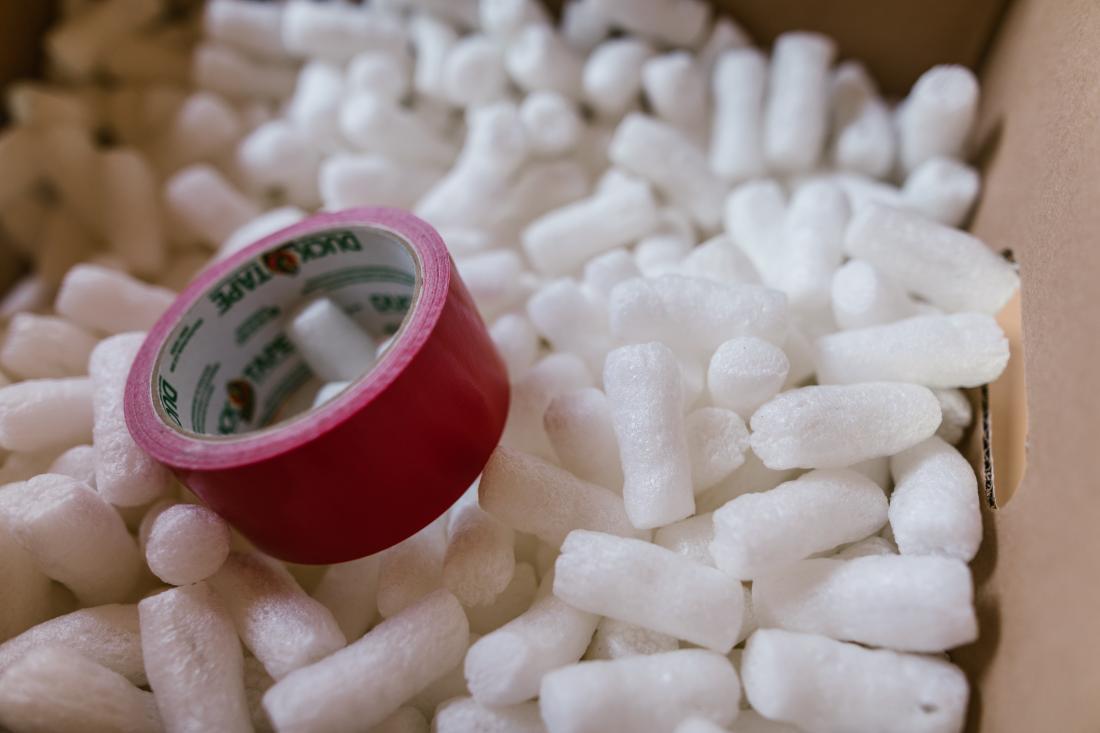Packing materials
A team of researchers from Thailand, Malaysia and Singapore has successfully harnessed pineapple waste materials from agriculture to create groundbreaking biodegradable rigid composite foams. The foam's base was formulated using starch extracted from pineapple stems, known for their high amylose content, while the filling material was derived from non-fibrous cellulosic components found in pineapple leaves.
Diverging from conventional techniques which involve preparing a batter, this study introduced a unique methodology. It began by creating a starch gel mixed with glycerol, achieved through the use of a common household microwave oven. The resulting mixture was then blended with the filling material using a two-roll mill. Subsequently, the amalgam was transformed into foam through compression molding at a temperature of 160°C.
The produced foams exhibited densities ranging from 0.43 to 0.51 g/cm³ and displayed a notably amorphous structure. Impressively, the foams showcased equilibrium moisture levels of approximately 8-10%, demonstrating their capacity to absorb 150-200% of their weight without deteriorating. The foams' flexural strengths varied between 1.5 and 4.5 MPa, with fluctuations based on the filler and glycerol contents.
Furthermore, biodegradability assessments utilizing a soil burial method demonstrated that the foam disintegrated completely into particles measuring 1 mm or smaller within a mere 15 days. Additionally, the researchers fabricated an environmentally friendly, single-use foam tray to illustrate potential practical applications.
This innovative approach, encompassing gel formation followed by filler integration, distinguishes itself from prior methodologies. The study's outcomes underscore the substantial potential of pineapple waste materials in crafting sustainable biodegradable foams with desirable attributes. Ultimately, these findings contribute significantly to the advancement of sustainable materials.
This work is influencing the industry practices in both foam production methods and agricultural practices. Notably, it has garnered sustained support from TEAnity Team Co., Ltd..
Led by Associate Professor Taweechai Amornsakchai (Mahidol University), the team of researchers comprised, Atitiya Namphonsane, Dr Sombat Thanawan, Dr Rungtiwa Wongsagonsup and Dr Siwaporn Meejoo Smith from Mahidol University, Dr Chin Hua Chia from Universiti Kebangsaan Malaysia, and Dr Kheng Lim Goh from Newcastle University in Singapore.
The work[1] has been published in Polymers. It can be freely downloaded at https://doi.org/10.3390/ polym15132895.
For further discussion, please contact Associate Professor Taweechai Amornsakchai at [email protected] or Associate Professor Kheng Lim Goh at [email protected]
Reference
[1] A. Namphonsane et al., "Development of Biodegradable Rigid Foams from Pineapple Field Waste," Polymers, vol. 15, no. 13, doi: 10.3390/polym15132895.



